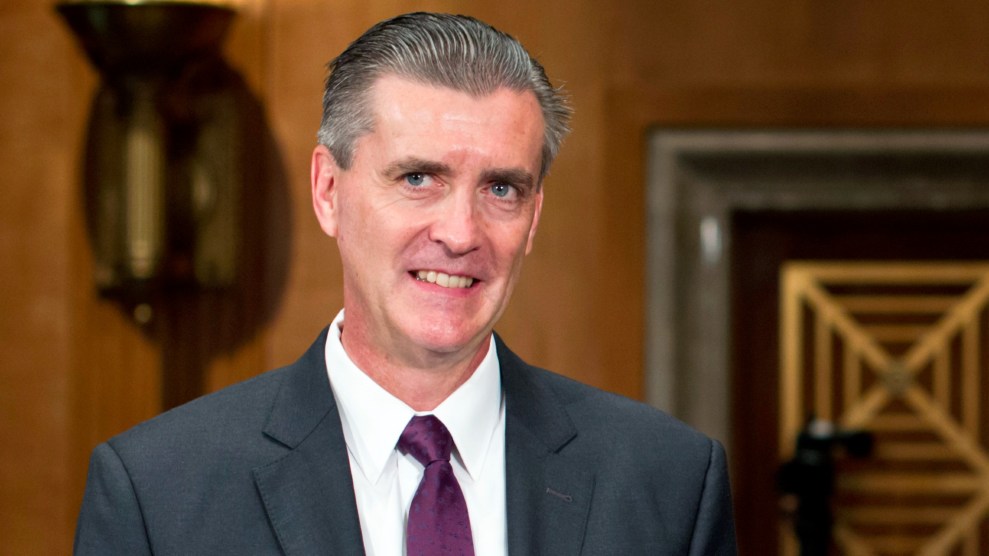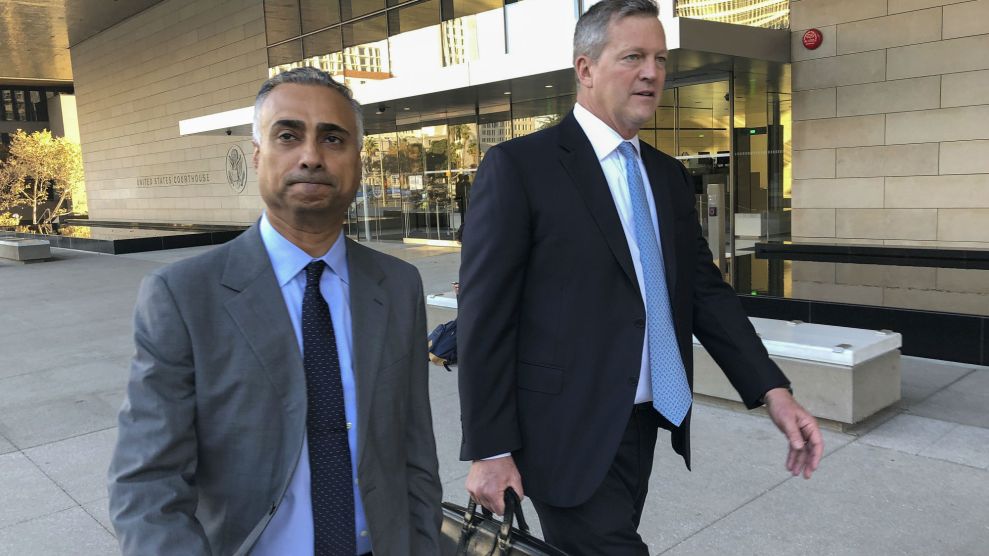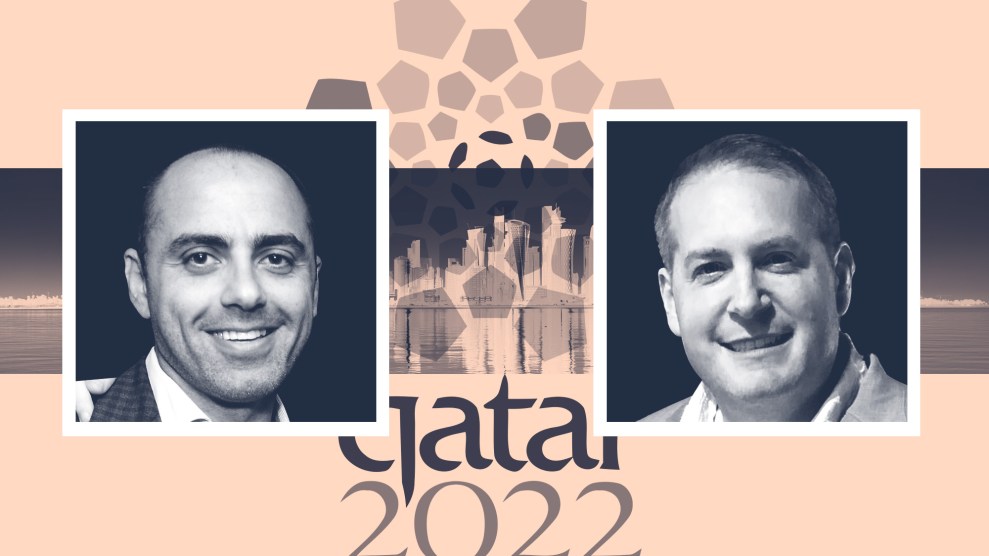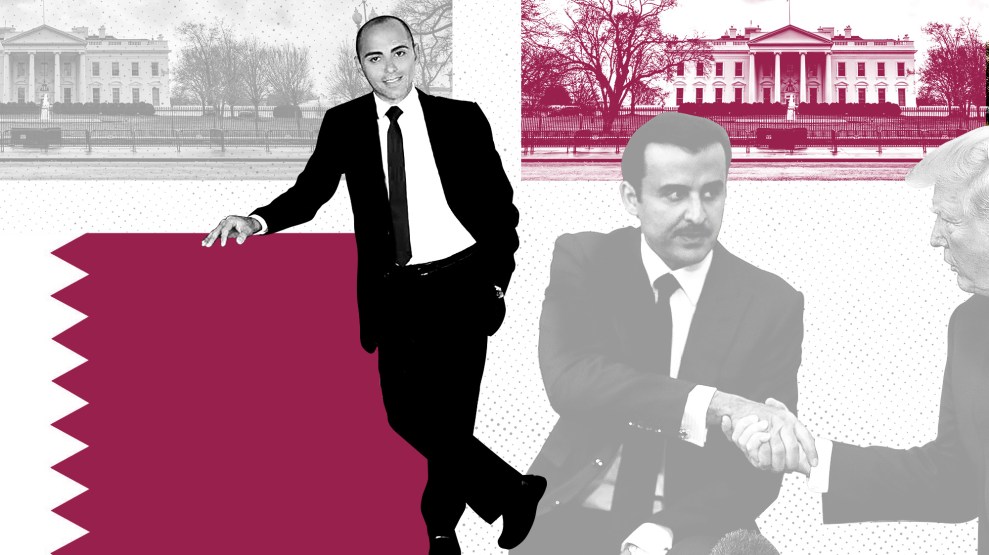
Richard Olson in 2012 before a hearing on his nomination as US ambassador to Pakistan.J. Scott Applewhite/AP
A former US Ambassador to Pakistan and the United Arab Emirates faces criminal charges for joining in a secret lobbying campaign on behalf of the Qatar government to influence the Trump White House and Congress in 2017.
In a court filings unsealed on Wednesday, Richard Olson, a career foreign service officer, indicated he will plead guilty to lying in ethics paperwork and violating revolving door laws by lobbying for Qatar within a year of leaving federal services. Those are misdemeanors, but the case against Olson is part of a larger federal investigation into Qatar influence efforts and illegal foreign lobbying that Mother Jones has previously reported on.
According to court documents, Olson’s secret lobbying included taking part in a campaign to “convince the U.S. government to support Qatar” during a regional crisis that resulted from a blockade of Qatar imposed by Saudi Arabia, the United Arab Emirates, Egypt, and other states pressuring Qatar to drop its alleged support for terrorist groups and shut down Al Jazeera, the Doha-Qatar based media network critical of the autocratic rulers of Middle Eastern states. Then President Donald Trump initially sided against Qatar, encouraged by advisers with close ties to the Emirati government, including Thomas Barrack, who has since been charged with acting as a UAE agent. In response, Qatar, a tiny but natural gas-rich state, launched a major lobbying campaign, which included both public and clandestine measures, to get Trump to take a more neutral stance.
According to the Justice Department, Olson worked for Qatar through Imaad Zuberi, a Pakistani-American businessman, who is now serving a 12-year federal sentence for violating lobbying and campaign finance laws, along with committing tax evasion and obstruction of justice. Zuberi convinced various foreign governments to hire him to lobby for them, and used funds from those clients to shower US politicians with campaign contributions, also secretly pocketing a lot of the money. He then used the resulting access to wield, or to pretend to wield, influence for his clients, without registering as a foreign agent in all but one case. A charging document for Olson does not name Zuberi, referring to him as “Person 1,” but details included make clear the person is Zuberi.
Zuberi in 2016 signed a contract with a Qatari-based holding company, according to the charging document, which paid him at least $3.5 million a year. Zuberi had met Olson in Pakistan 2013, and in 2015, while Olson was still serving as US ambassador there paid around about $22,000 total for a trip Olson took to London for a meeting there to discuss working for a Zuberi associate from Bahrain, a gift Olson failed to report in an annual ethics form. In December 2016, Olson began working for that Zuberi associate, who is unnamed in the filing, for $300,000 a year. Olson provided advice for a lobbying campaign to get the White House and Homeland Security Department to establish a “preclearance” facility in Doha, Qatar, which would make travel from Qatar to US destinations easier.
According to the charging document, Zuberi and two unnamed partners viewed the June 2017 blockade of Qatar as a “business opportunity” and sought to “profit from” Olson’s status as a former US ambassador to the UAE, Qatar’s rival. On around June 6, 2017, Olson contacted “Person 3” to help “provide aid and advice to Qatari government officials with the intent to influence” US policy in the crisis, the court filing says. On June 10, Zuberi, Olson, and Person 3 traveled to Doha, where Olson and Person 3 met with various Qatari officials including Qatar’s Emir, Sheikh Tamim bin Hamad Al Thani. After returning, the men met in Washington with members of Congress.
As I previously reported, the person who joined Zuberi and Olson on this trip was retired US Marine Corps four-star general John Allen, the former commander of the NATO and US forces in Afghanistan and currently president of the Brookings Institution. Allen was a Brooking’s fellow at the time of the trip. That story also reported that Zuberi, who DOJ says was an agent for the Qataris, arranged and paid for this trip. Allen kept then-White House National Security Adviser H.R. McMaster apprised of the trip. In emails to McMaster, which I obtained last year, Allen praised Trump’s handling of the diplomatic crisis, calling it “masterful” and touted his own long-standing relationship with Qatari leaders: “I have their trust at several levels,” he said in a June 9 email to McMaster. Allen also passed on Qatari perspectives on the Gulf crisis and transmitted their requests for meetings with senior US officials.
It is not clear if Allen knew that Olson and Zuberi were working for the Qataris; DOJ has presented no such evidence. Allen did, however, praise Zuberi in personal emails. “Thank you for facilitating what I think were very important talks with the Qataris,” he wrote to Zuberi on June 12, 2017. “They couldn’t have taken place without your leadership.”
Beau Phillips, a spokesperson for Allen did not respond to an inquiry on Wednesday. Phillips previously told the Associated Press: “General Allen has never acted as an agent of the Qatari government.”
















